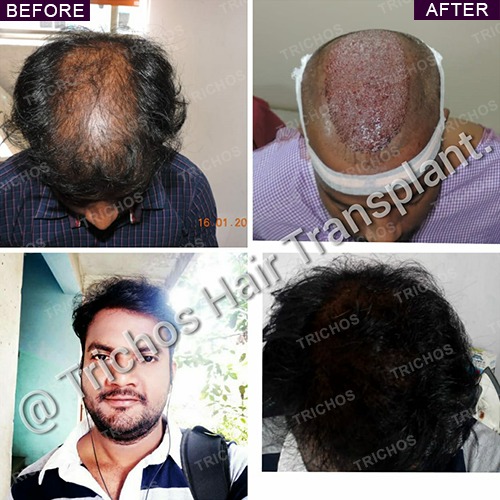What’s Hair Pulling Disorder Trichotillomania?
Trichotillomania is an unusual and rare situation that many hair loss patients may be suffering from. It is a compulsive hair-pulling disorder that may cause mild to significant hair loss, often leaving patchy bald spots.
Though Dr John Watts – a noted dermatologist, trichologist and hair transplant surgeon in Hyderabad – sees different hair loss patients every day such as hereditary hair loss, drug or nutritional deficiency induced hair loss, bacterial and fungal induced hair loss, he specifically pointed out a few uncommon ones too.
In this educational video, Dr John Watts sheds light on the unusual ‘hair-pulling disorder called Trichotillomania and informs viewers of his popular YouTube channel on ways to control this disorder. He has successfully performed over 1900+ hair transplant procedures so far.
What is Trichotillomania?
Trichotillomania is a type of madness and often a consequence of behavioural issues faced by the hair loss victim. The urge to pull hair becomes dominant as the patient may be dealing with a psychological issue and as a response to battle it, takes to hair pulling involuntarily.
“Trichotillomania patients have to learn to come out of the loop of thoughts that they are dealing with. Unless those thoughts stop, the consequences would be hair loss for them,” explained Dr John Watts.
He explained that one’s dominant hand depending upon if one is right-handed or left-handed may sometimes lead to hair loss on one side of the scalp. “We have seen such cases where there is hair loss on one side. The hair roots are intact but there is no growth due to the hair-pulling disorder,” informed Dr John Watts.
Trichotillomania: Solutions
Untreated Trichotillomania condition may aggravate the distress levels of the patient and also affect the life of the patient. There needs to be a quick diagnosis and response to treat Trichotillomania as delay may lead to hair loss.
“The best thing to do first is for the patient to speak to his friends or elders in the family as to what is affecting his thought process. The other solution is to consult a dermatologist or take the opinion of a psychologist or a psychiatrist to come out of the “loop of thoughts” he is in,” informed Dr John.
The bottom line is to treat the underlying cause that is affecting the thought process of the Trichotillomania patient. This is a minor issue but delaying treatment could backfire on the
Trichos provides state-of-the-art treatment for various hair loss conditions and offers advanced hair transplant solutions. Call us Today for a Life-Changing Experience.
Book an appointment for expert guidance


About
Causes
Alopecia
Restoration
Procedures
Locations
Disclaimer: While hair transplants are generally safe and effective, as with any medical procedure, there can be minimal and temporary side effects based on specific or underlying medical condition of the individual patient. Please consult in person with our qualified medical team at Trichos for a thorough assessment of your specific condition and individualized guidance on the potential risks and benefits associated with our hair restoration treatments.
Learn more about Medical Consent for Surgeries.



